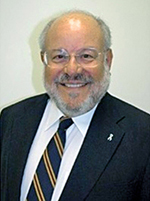Grossman: The DEC at its worst with mute swans
 Hands down, what is the dumbest thing the Department of Environmental Conservation has ever come up with?
Hands down, what is the dumbest thing the Department of Environmental Conservation has ever come up with?How about the DEC’s plan to slaughter 2,200 beautiful, elegant, graceful birds, the total population of mute swans in New York State?
“It is real stupid,” said Larry Penny, for 28 years East Hampton Town’s director of natural resources and environmental preservation. The DEC claims it needs to kill the swans because they’re an “invasive” species.
“Nonsense,” says Mr. Penny.
They were brought to North America from Europe after the Civil War and “they’re not doing any harm.” Also, there “are natural checks on their population — raccoons and foxes take them. They’re subject to a lot of pressure,” Mr. Penny said.
Hugh Rafles, anthropology professor at The New School in an op-ed prominently featured in The New York Times last month — “Speaking Up for the Mute Swan” — wrote: “There’s a larger issue here.
The real environmental problems faced by New York State are created not by birds but by people. In the nearly 150 years that the mute swan has been among us, it has witnessed a radical decline in the extent of the state’s wildlife habitat, and in the quality of its waters and soil.”
Because “of their limited diet, mute swans are a sentinel species, concen- trating contaminants in their livers and revealing the presence of chemical toxicities in fresh water. Rather than eliminating swans, we should pay attention to their struggle to survive and what it can tell us about the state of our state.”
From the celebration of mute swans in “Swan Lake” by Tchaikovsky to the ballet of mute swans gliding on Long Island ponds and bays in the summer leading a line of signets, they represent their species at its loveliest.
The DEC grew out of the state Conservation Department, established in 1911, which, in turn, replaced the Fisheries, Game and Forest Commission, formed in 1895, both mainly created to regulate hunting. The legislation creating the DEC was signed into law on the first Earth Day, April 22, 1970, reflecting the upsurge of environmental consciousness in the state and the U.S. in the 1960s.
The outrageous swan kill isn’t the only wrong-headed move by the DEC in recent times. For example, last year it issued a report on pollution from the Long Island Compost facility in Yaphank that stated: “This investigation points to the need to modify the operation practices at these facilities in order to prevent such occurrence.” Yet months later the DEC rubber-stamped a fi ve-year permit renewal for the 50-acre Sand Land operation in Noyac where comparable production of mulch is going on.
Suffolk Health Commissioner Dr. James Tomarken and Southampton Town asked the DEC to require monitoring wells be installed to check on any Sand Land pollution as a permit condition. The DEC ignored this, said Bob DeLuca, president of the Group for the East End, speaking before the Noyac Civic Council last week. “The DEC has a lot of problems,” Mr. DeLuca said. “It’s incapable of doing a lot of things.”
There have been some terrific people at the DEC. Tony Taormina, long its Long Island-based director of marine resources, was an extraordinary environmental watchdog, a crusader against DDT and a key fi gure in the 1970s involved in enacting state laws protecting wetlands.
But, overall, Mr. Penny said, the DEC has been “a mixed bag.” It’s “been generally pretty good,” but “they have so much on their plate. Their problem is they never have enough staff.” And, he added, the DEC has trouble “finishing things.”
Fortunately, the harebrained scheme to eradicate mute swans will not be moving ahead right away. There has been, rightfully, a public and official uproar. The state agency admits it has received over 1,500 comments from individuals and organizations and 16,000 letters overwhelmingly opposed to the idea and petitions with 30,000 signatures against it.
State Assemblyman Fred W. Thiele Jr. (I-Sag Harbor) is co-sponsoring legislation requiring a moratorium on the plan and asking the DEC to prove the swans cause “actual damage to the environment or other species.” State Senator Kenneth LaValle (R-Port Jefferson) has introduced his own bill for a moratorium and “independent study” of the DEC’s justification.
DEC Commissioner Albert Martens now says there will soon be “a revised plan.”
Revised?
He and the DEC should pack it in now and forget about murdering swans.



